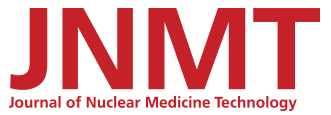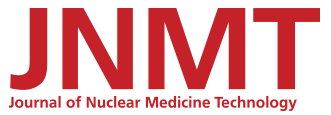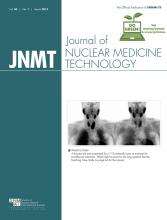April Mann, MBA, CNMT, NCT, RT(N), FSNMMI-TS
I am happy to report that the SNMMI-TS has been hard at work! It is hard to believe it has been 6 months already since I stepped into the role of president. I have been fortunate to be surrounded by a great leadership team who are all very dedicated to the profession and to moving the field forward. The main theme of our efforts to date has been support and development of our multiyear SNMMI-TS Quality Initiative. This initiative will prepare nuclear medicine technologists for the future, as health care moves from the traditional model to a new environment focused on quality and value.
Over the past several months, SNMMI-TS leadership has met with industry and organization partners to define and announce the Quality Initiative. These meetings developed and strengthened our relationships with these groups, which will support the success of the initiative.
Working with these partners, SNMMI-TS will define which data are necessary to develop programs and educational offerings, which of these data already exist, and which still need to be created. We will identify opportunities for improvement and select which individuals and groups we need to reach with our message. Then we will both demonstrate and provide quality through education and training, advocacy, awareness, outreach, and collaboration. These efforts not only will be useful in demonstrating the high quality and safety of nuclear medicine procedures but also will arm today’s practicing technologists with the tools required to provide a high-quality patient experience.
As part of the initiative, the SNMMI-TS will be holding several sessions at the 2015 annual meeting focusing on quality and supporting the campaign. For the first time, the SNMMI-TS will partner with the American Society of Nuclear Cardiology (ASNC) to host a full-day session entitled “Nuclear Cardiology in 2015: Achieving Quality, Safety and Dose Optimization.” The SNMMI-TS will offer the member rate to current ASNC technologist members for the meeting. This joint session is one of many to be held in the future as part of our efforts to collaborate with our organization partners and demonstrate our commitment to quality.
The plenary speaker for the Technologist Section will be Rosemary Gibson, a senior advisor to The Hastings Center and an editor for JAMA Internal Medicine. At the Robert Wood Johnson Foundation in Princeton, NJ, she led national health care quality and safety initiatives for 16 years. She was chief architect of the foundation’s successful, decade-long strategy to establish palliative care in more than 1,600 hospitals in the United States. She received the Lifetime Achievement Award from the American Academy of Hospice and Palliative Medicine. Gibson is a public director of the Accreditation Council for Graduate Medical Education and member of the Medical Education CLER Evaluation Committee that is assessing quality and patient safety in sponsoring institutions for residency training. She is also a member of the American Board of Medical Specialties’ Public Policy Committee and the Consumers Union Safe Patient Project.
Following the plenary, there will be another special session focused on quality titled “Spotlight on Quality in Nuclear Medicine Technology.” This session will comprise 3 presentations: “Quality and Comparative Effectiveness in Nuclear Medicine Imaging,” “Achieving Quality in Myocardial Perfusion Imaging,” and “Achieving Quality When Performing Ventilation/Perfusion Imaging.” These sessions were designed to increase awareness among technologists of their role in high-quality patient care.
In addition to the quality initiative, the SNMMI-TS leadership continues to work closely with The Joint Commission (TJC) on the proposed revisions to diagnostic imaging services. These revisions would change the standards that are essential to nuclear medicine and, if approved, could have a detrimental effect on the industry as a whole. In response, the SNMMI-TS leadership met with TJC during the Radiological Society of North America annual meeting to discuss these concerns and review the training and credentials of certified technologists practicing in the field today. Further, SNMMI-TS leadership is collaborating with the Nuclear Medicine Technology Certification Board (NMTCB) and the American Registry for Radiologic Technologists (ARRT) to create a response to recommend training and certification criteria for both nuclear medicine technologists and radiographers.
Finally, the SNMMI-TS is excited to announce a new ARRT/SNMMI-TS grant, funded by ARRT, that will support nuclear medicine technologists wishing to pursue additional educational opportunities in an effort to advance their professional career. Thirteen $500 awards will be offered—one to each SNMMI chapter. If an award is not used by a chapter, the monies will be made available to other chapters. The awards may be used to fund continuing education, ARRT certification exams, or degree-focused education.








